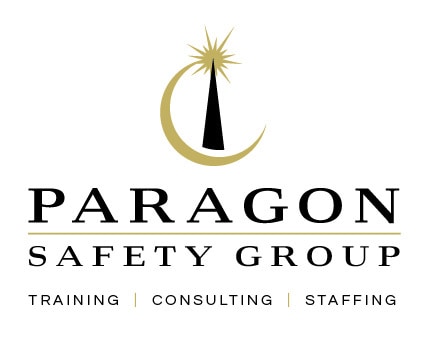Paragon Safety Group on Ever-Evolving PPE Requirements
Does your company have any “old timers” on the payroll, who have been working in construction since Richard Nixon was president? They are probably a little gruff, take no nonsense, and maybe they don’t always like to wear all of the fancy PPE that exists today. After all, they’ve been on the job for a while, and can say such things as “I never used to bother with PPE, and I’m still alive.”
Most people who are older than 40 had this experience during childhood: it’s a hot summer day, you’ve been playing outside with your friends, and the cool water from the garden hose seems so inviting, so you take a drink. In 2019 we know that drinking from the garden hose means drinking bacteria, lead, and harmful plastics, and you should really just go inside and drink water from the fridge, because its food-grade piping doesn’t leach chemicals.
A lot of the over-40 crowd, including your gruff Old Timers, might think modern-day society is full of overly-sensitive snowflakes just being silly about drinking straight from the hose. They did it, and they’re still alive, right? Well, yes and no – maybe 2019’s hoses leach more chemicals into the water than the hoses from 1980. Are the goalposts moving?
And this is the case with Silica Safety. Did you know that countertops made from “engineered stone,’ which is popular in modern construction, can be made up of 90% respirable silica? Compare that to the marble countertops popular in decades past, which are only 10% silica. So a modern-day worker cutting stone for a countertop is MUCH more at risk than a worker from 30 years ago doing the exact same work – the goalposts have moved! And since the materials being used are more dangerous, simple exposure to them can be harmful. Of course workers who actively cut or drill into silica are at risk of silicosis, but did you know that even just sweeping up silica dust after the day’s work is done can put you at risk of the disease?
You don’t have to take our word for it: read or listen to this informative article, entitled “Workers Are Falling Ill, Even Dying, After Making Kitchen Countertops” released by NPR in Fall 2019.
The problem with silica safety is…silica illness causes people to die a painful death. And it can be avoided by using common-sense, easy methods while you work with materials that contain silica. And did we mention? These methods are also required by OSHA to prevent worker exposure to silica. Are you doing the right thing when it comes to protecting employees from silica exposure? OSHA requires it, and so should your sense of duty to not putting workers at risk of illness. If you need a Silica Exposure Control Plan, contact us today and we can chat about how we can write a Silica Policy that reduces your risk and keeps employees safe and productive.
Paragon Safety Group, Inc., a full-service safety consulting firm based in Raleigh, N.C., which provides safety training, staffing, consulting and digital safety management to general contractors, specialty subcontractors and service-based companies throughout the Southeast.








